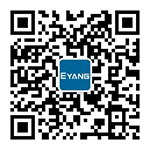Service Support
-
Green products
From the beginning of design and R&D, EYANG has introduced environmental protection management, paid close attention to the issue of Restriction of Hazardous Substances Directive and the update of laws and regulations, mastered the latest international environmental protection requirements and standards, selected environmental protection raw materials, adopted international advanced environmental protection process, and fundamentally ensured the compliance of the products with the global environmental protection requirements. In 2018, the company passed the certification of QC080000 process management system for hazardous substances, and the products met the requirements of the latest RoHS directive and REACH regulations. EYANG will firmly support the environmentally friendly production mode. Produce environmentally friendly products to protect the earth's environment.
-
Environmental protection policy
EYANG implements the principle of “clean production, up-to-standard discharge and total quantity control” stipulated by the state, strictly implements the “three simultaneities” system, builds wastewater and waste gas treatment facilities, and entrusts a third party to conduct monitoring on a regular basis, thus the treatment of wastewater and waste gas meets the national and local discharge standards. Establish a hazardous waste warehouse as required, and regularly entrust a qualified third party for treatment to ensure compliance. With the electroplating workshop located in Longwan Electroplating Base, Taiping Town, Qingxin District, Qingyuan City, Guangdong Province, the requirements of environmental impact assessment are strictly implemented, and the three wastes are treated and discharged up to the standard.
Hazard management
|
No. |
Chemical substances |
Regulatory control value |
|
1 |
Lead (Pb) and lead compounds |
<1000ppm |
|
2 |
Cadmium (Cd) and cadmium compounds |
<100ppm |
|
3 |
Mercury (Hg) and mercury compounds |
<1000ppm |
|
4 |
Hexavalent chromium (Cr + 6) compounds |
<1000ppm |
|
5 |
Polybrominated biphenyls PBBs |
<1000ppm |
|
6 |
Polybrominated diphenyl ethers (PBDEs) (including Deca-BDE) |
<1000ppm |
|
7 |
Di-2-Ethylhexyl Phthalate (2-Ethylhexyl) Ester (DEHP) |
<1000ppm |
|
8 |
Methyl-butyl phthalate (BBP) |
<1000ppm |
|
9 |
Dibutyl phthalate (DBP) |
<1000ppm |
|
10 |
Diisobutyl phthalate (DiBP) |
<1000ppm |
|
Halogen |
Bromine (Br) ≤ 900ppm, Chlorine (Cl) ≤ 900ppm, Bromine (Br) + Chlorine (Cl) ≤ 1500ppm |
Conflict Minerals (CM) refer to gold (Au), tantalum (Ta), tungsten (W), cobalt (Co), tin (Sn) and other metallic minerals produced from the mining areas in the conflict areas controlled by non-governmental military groups or non-military factions in the Democratic Republic of the Congo. The illegal mining profits obtained by local military groups are stolen from citizens, and cause human rights violations and environmental degradation in the eastern part of the Democratic Republic of the Congo.
EYANG requires that the products, spare parts and materials provided by the suppliers should not contain conflict minerals (including tantalum, tin, gold, tungsten and other minerals and their derivatives determined by the United States to finance the armed conflicts between the Democratic Republic of the Congo and its surrounding countries and regions). In addition, the suppliers need to provide the name and address of the smelter and other information.

 Mailbox
Mailbox